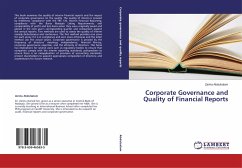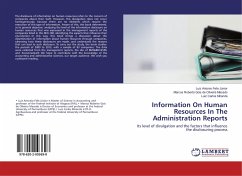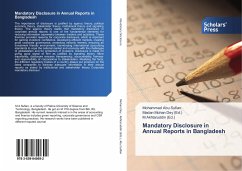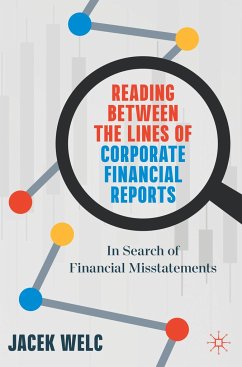
Corporate Governance and Quality of Financial Reports
Versandkostenfrei!
Versandfertig in 6-10 Tagen
62,99 €
inkl. MwSt.

PAYBACK Punkte
31 °P sammeln!
This book examines the quality of interim financial reports and the impact of corporate governance on the quality. The quality of interim is proxied by timeliness; compliance with the FRS 134, Interim Financial Reporting; compliance with the Bursa Malaysia Listing Requirements; and comparability of profit and loss items when they were originally issued and placed in the next year's corresponding quarter and comparison against the annual reports. Two methods are used to assess the quality of interim namely dichotomous and continuous. The first method provides one score for each proxy if it is i...
This book examines the quality of interim financial reports and the impact of corporate governance on the quality. The quality of interim is proxied by timeliness; compliance with the FRS 134, Interim Financial Reporting; compliance with the Bursa Malaysia Listing Requirements; and comparability of profit and loss items when they were originally issued and placed in the next year's corresponding quarter and comparison against the annual reports. Two methods are used to assess the quality of interim namely dichotomous and continuous. The first method provides one score for each proxy if it is in compliance and zero score otherwise and the latter method use the actual values. Corporate governance is proxied by the frequency of directors' meetings, independence, financial literacy, corporate governance expertise, and the ethnicity of directors. This book has implications for several users such as regulatory bodies to ensure that companies comply with the interim reporting standards;policymakers to ensure there is no misapplication of provision of accounting standards; protect shareholders to appoint appropriate composition of directors; and academicians for future research.












